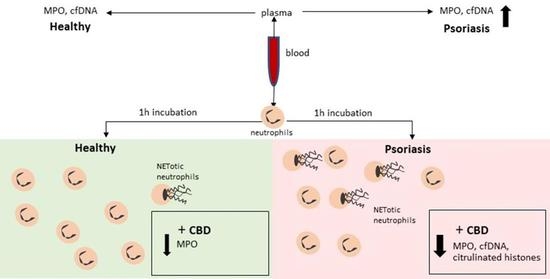 “In recent years there has been a growing appreciation by regulatory authorities that cannabis-based medicines can play a useful role in disease therapy.
“In recent years there has been a growing appreciation by regulatory authorities that cannabis-based medicines can play a useful role in disease therapy.
Although often conflagrated by proponents of recreational use, the legislative rescheduling of cannabis-derived compounds, such as cannabidiol (CBD), has been associated with the steady increase in the pursuit of use of medicinal cannabis.
One key driver in this interest has been the scientific demonstration of efficacy and safety of CBD in randomised, placebo-controlled clinical trials in children and young adults with difficult-to-treat epilepsies, which has encouraged increasing numbers of human trials of CBD for other indications and in other populations.
The introduction of CBD as the medicine Epidiolex in the US (in 2018) and as Epidyolex in the EU (in 2019) as the first cannabis-derived therapeutic for the treatment for seizures was underpinned by preclinical research performed at the University of Reading.
This work was awarded the British Pharmacological Society Sir James Black Award for Contributions to Drug Discovery 2019 and is discussed in the following review article.”
https://pubmed.ncbi.nlm.nih.gov/32986848/
https://bpspubs.onlinelibrary.wiley.com/doi/10.1111/bph.15274

 “Cannabidiol (CBD) is reported to produce pain relief, but the clinically relevant cellular and molecular mechanisms remain uncertain.
“Cannabidiol (CBD) is reported to produce pain relief, but the clinically relevant cellular and molecular mechanisms remain uncertain. “Cannabidiol (CBD), a natural occurring phytocannabinoid, is used extensively in consumer products ranging from foods to shampoos, topical oils and lotions.
“Cannabidiol (CBD), a natural occurring phytocannabinoid, is used extensively in consumer products ranging from foods to shampoos, topical oils and lotions. “Cannabis exposure is becoming more common in older age but little is known about how it is associated with brain health in this population.
“Cannabis exposure is becoming more common in older age but little is known about how it is associated with brain health in this population. “To determine if cannabis may be used as an alternative or adjunct treatment for intermittent and chronic prescription opioid users.
“To determine if cannabis may be used as an alternative or adjunct treatment for intermittent and chronic prescription opioid users. “The prevalence of mild traumatic brain injury is highest amongst the adolescent population and can lead to complications including neuroinflammation and excitotoxicity.
“The prevalence of mild traumatic brain injury is highest amongst the adolescent population and can lead to complications including neuroinflammation and excitotoxicity. “Δ9 -Tetrahydrocannabinol (THC), the main bioactive compound found in the plant Cannabis sativa, exerts its effects by activating cannabinoid receptors present in many neural cells.
“Δ9 -Tetrahydrocannabinol (THC), the main bioactive compound found in the plant Cannabis sativa, exerts its effects by activating cannabinoid receptors present in many neural cells. “Psoriasis is associated with increased production of reactive oxygen species which leads to oxidative stress.
“Psoriasis is associated with increased production of reactive oxygen species which leads to oxidative stress.